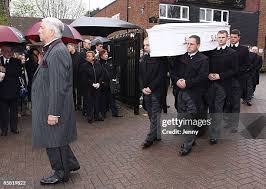Understanding the Role of Funeral Directors

The Importance of Funeral Directors
Funeral directors play a crucial role in society, providing essential services to families during one of their most difficult times. They help guide bereaved families through the process of planning funerals, ensuring that both practical needs and emotional support are addressed. Given the increasing complexities surrounding funerals, the role of a funeral director has never been more significant.
Recent Developments in the Industry
Following the COVID-19 pandemic, the funeral industry in the UK has undergone several transformations. The demand for funeral director services increased significantly as families sought to navigate the protocols surrounding burials and cremations safely. According to the National Association of Funeral Directors (NAFD), there has been a rise in the acceptance of pre-planned funerals, reflecting a growing awareness among the public about the importance of preparing for one’s own funeral arrangements.
Services Offered
Funeral directors provide a wide range of services including, but not limited to, the transportation of the deceased, preparation and embalming, arranging for burial or cremation, and assisting families with paperwork such as death certificates and funeral notices. Many funeral homes are also increasingly offering personalised services that cater to the unique wishes of the deceased and their families, including themed funerals that reflect a person’s life and passions.
Support for Families
Beyond logistical support, funeral directors also offer emotional support to grieving families. This can include assistance in dealing with grief, directing families to support groups, or even offering counselling services. Many funeral directors are trained in providing a compassionate approach to funerals, helping families to celebrate the life of their loved ones while also coping with their loss.
Looking Forward
As we move further into 2024, it is expected that funeral directors will continue to innovate, adapting to the changing needs of the public. Eco-friendly funerals are becoming increasingly popular, and many funeral homes are beginning to offer greener alternatives to traditional practices. This signifies a shift towards sustainability in death care, alongside a more empathetic approach to the services provided.
Conclusion
The role of funeral directors is vital in helping families navigate the challenging process of arranging a funeral. As the industry evolves, funeral directors will continue to be at the forefront, balancing traditional practices with modern needs while providing both logistical and emotional support to those they serve.








